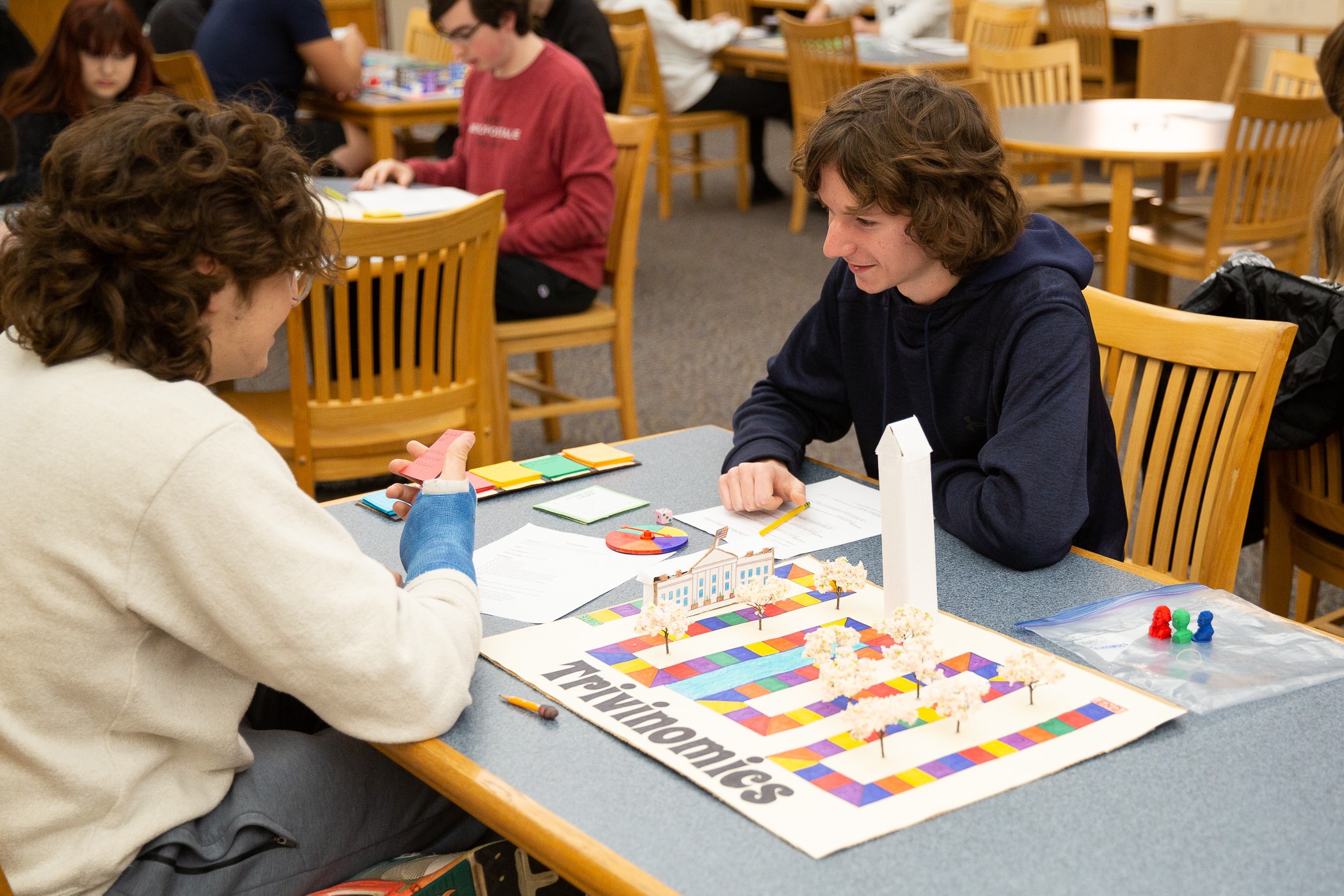
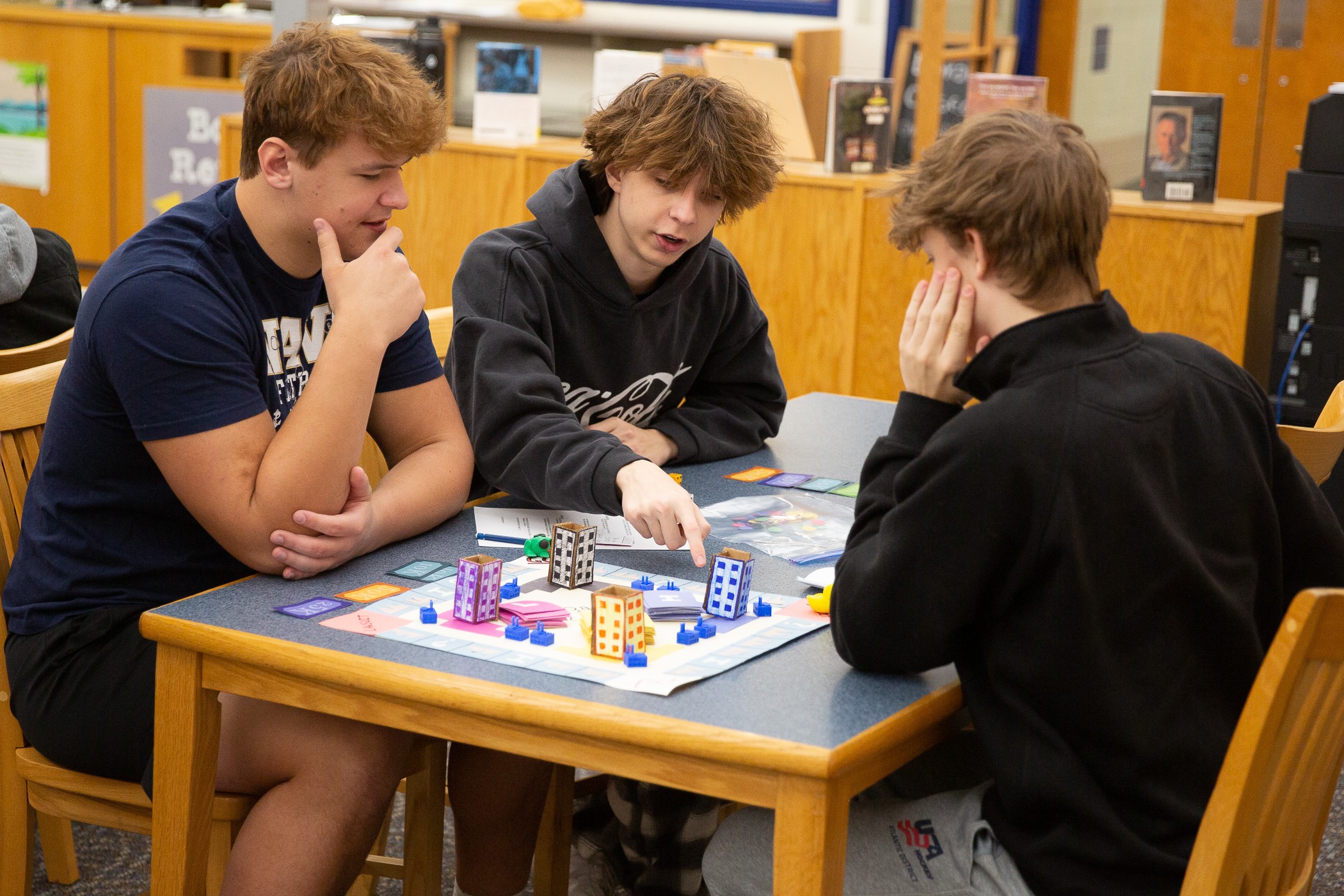
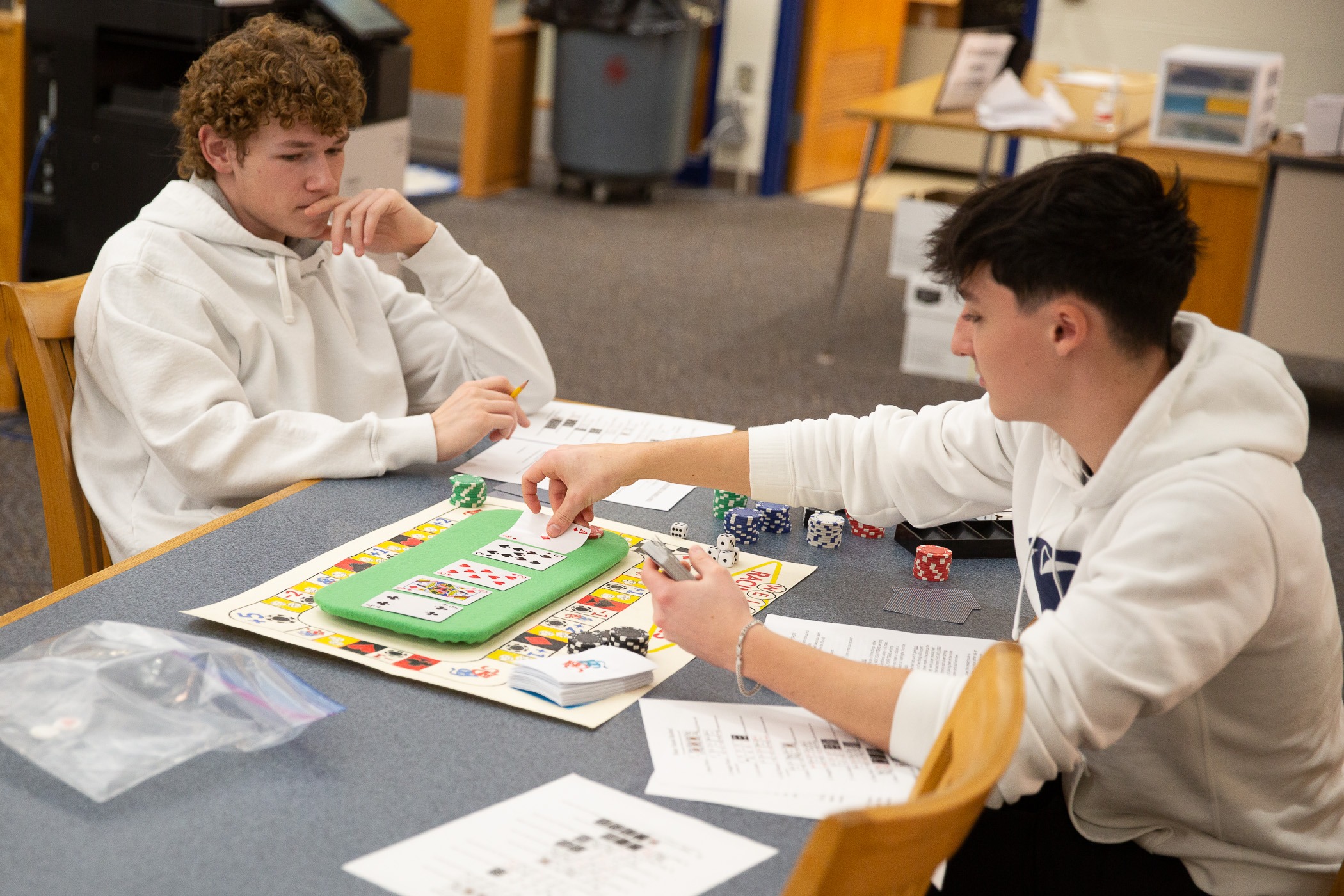
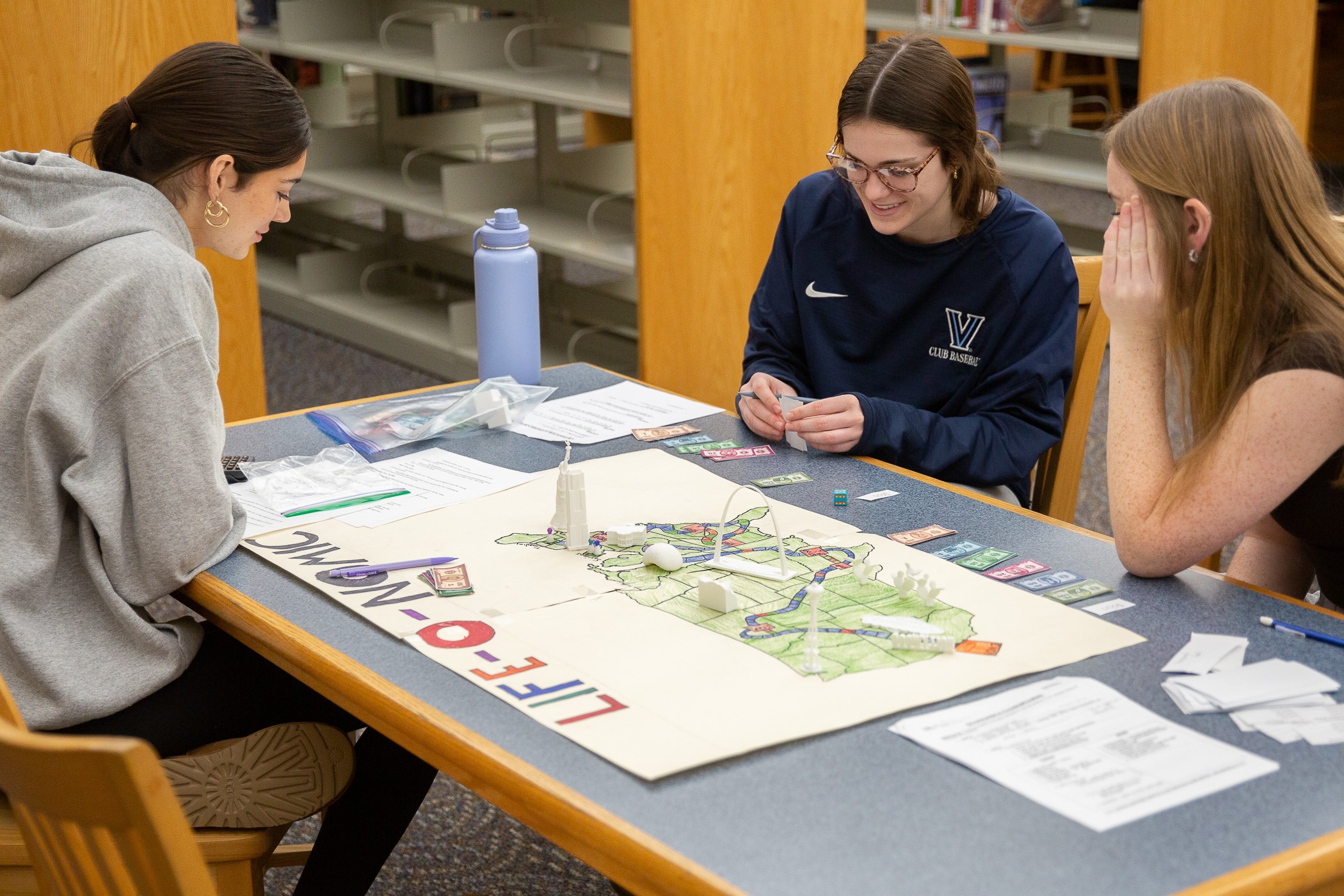
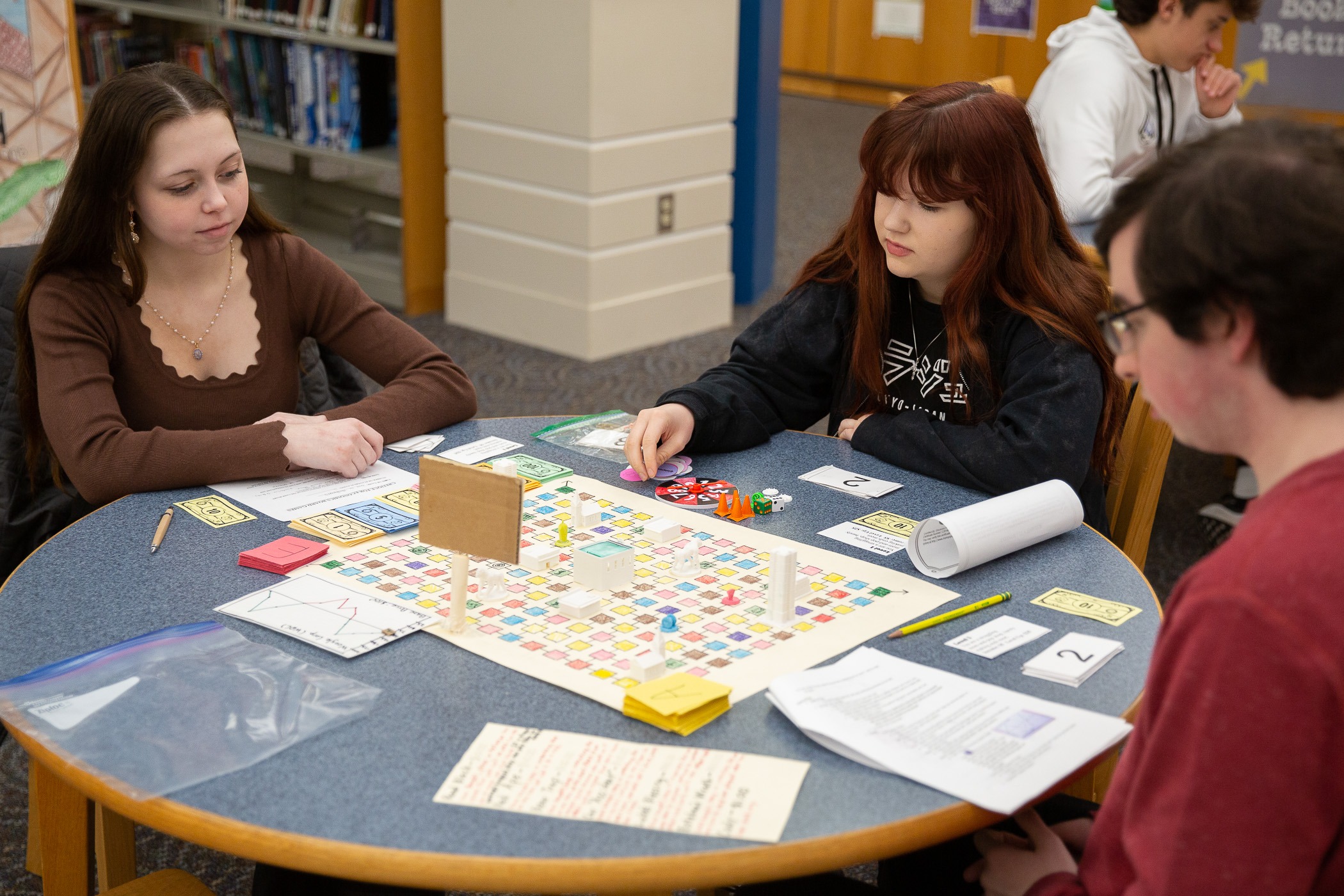
Students in Honors Economics rolled dice, flipped cards and moved handmade tokens around game boards in class yesterday. While it may have seemed that they were taking a day off of studying to relax, hang out and play games, the seriousness throughout the room implied that there was actually important schoolwork to do. At each table, students debuted weeks’ worth of work as they unveiled a newly-invented board game that they created and introduced it to their classmates who were there to play–and critique–each game’s playability, design and instruction clarity to determine its potential success on the market. That latter part of the project is a key element of how teacher, Mr. Brett Witmer, approaches the multitude of group projects and hands-on work that students complete in Honors Economics where students also create sneaker ideas, design t-shirts for a mock fundraiser and go through a simulated version of “Survivor” to bring economic principles to life in a very real, relatable and hands-on way.
“I’ve had some fantastic professors in economics who really knew their stuff, but didn’t know how to convey it or make it relatable. A crux of the success of students in this course is giving them a chance to practice and apply the skills they’re learning,” said Mr. Witmer. As students learn the foundations of economics, the projects they simultaneously work on allow them to apply those concepts and principles to real-world business situations, such as the t-shirt fundraiser where students determined a selling price based upon supply and demand analyses, competition and other economic factors that would allow them to be successful to reach a fundraising goal. When projects are completed, students present them to other students, who then serve as focus groups to determine the potential success–or failure–of their ideas.
As they started to relax as they learned how to play each other’s games while taking careful notes on how to improve them, students seemed to agree on their appreciation of the hands-on learning style that brings to life a subject that could be dry and boring. “The class has really allowed us to be surprisingly creative,” said senior Cody Manning. Senior Luke Zawilla agreed and quickly added, “While also teaching us factors behind why prices rise, or how businesses run, or people’s thought processes on buying things... It’s been a really cool learning experience.”
